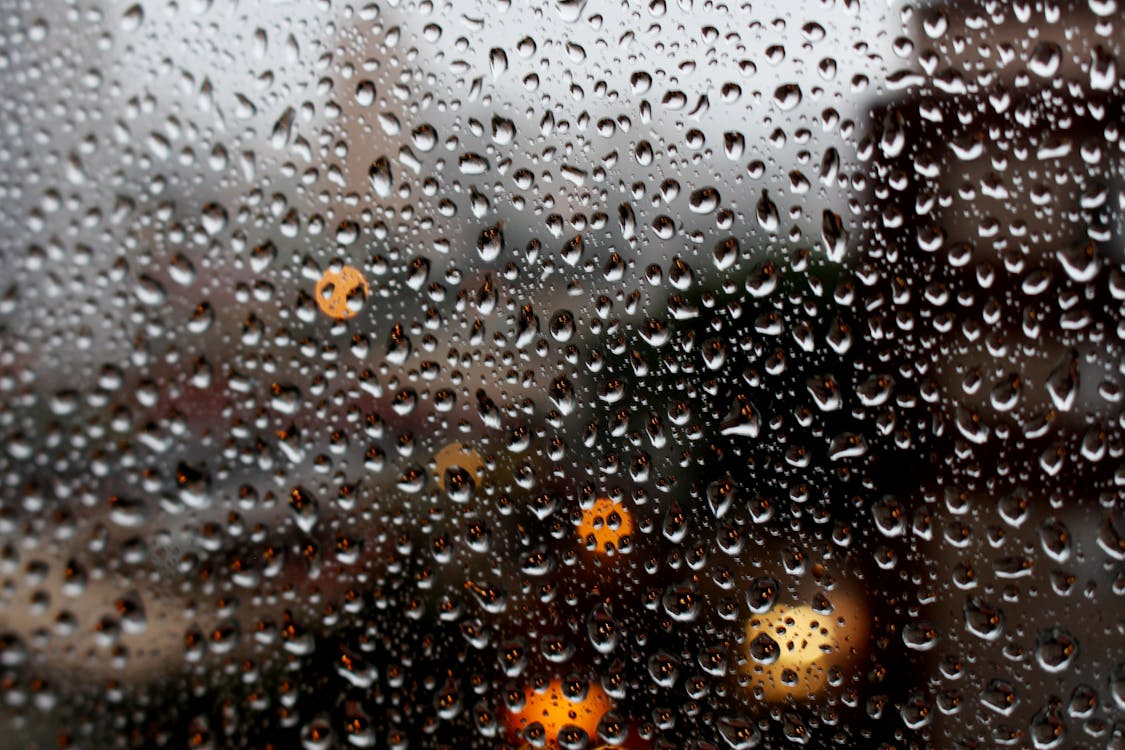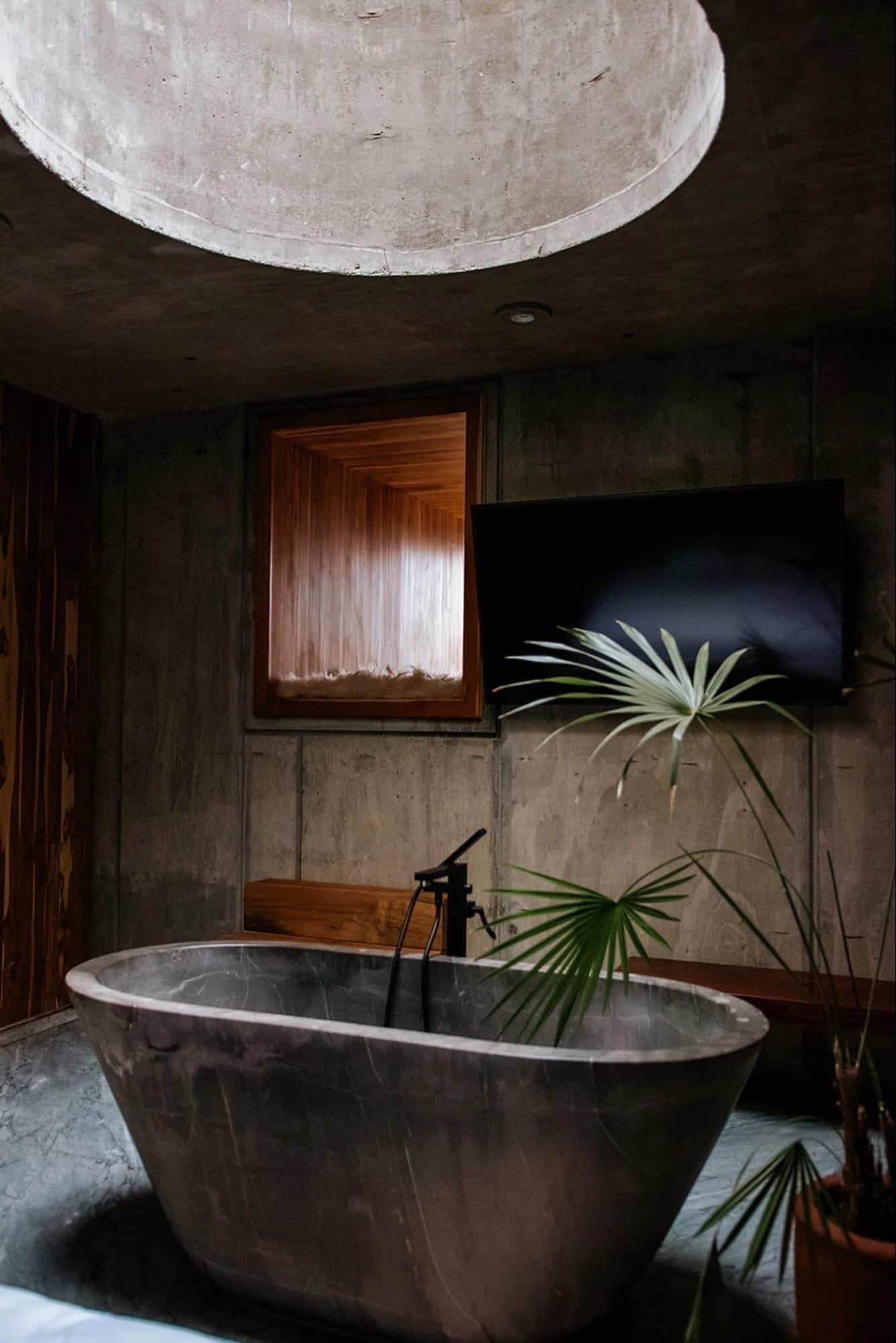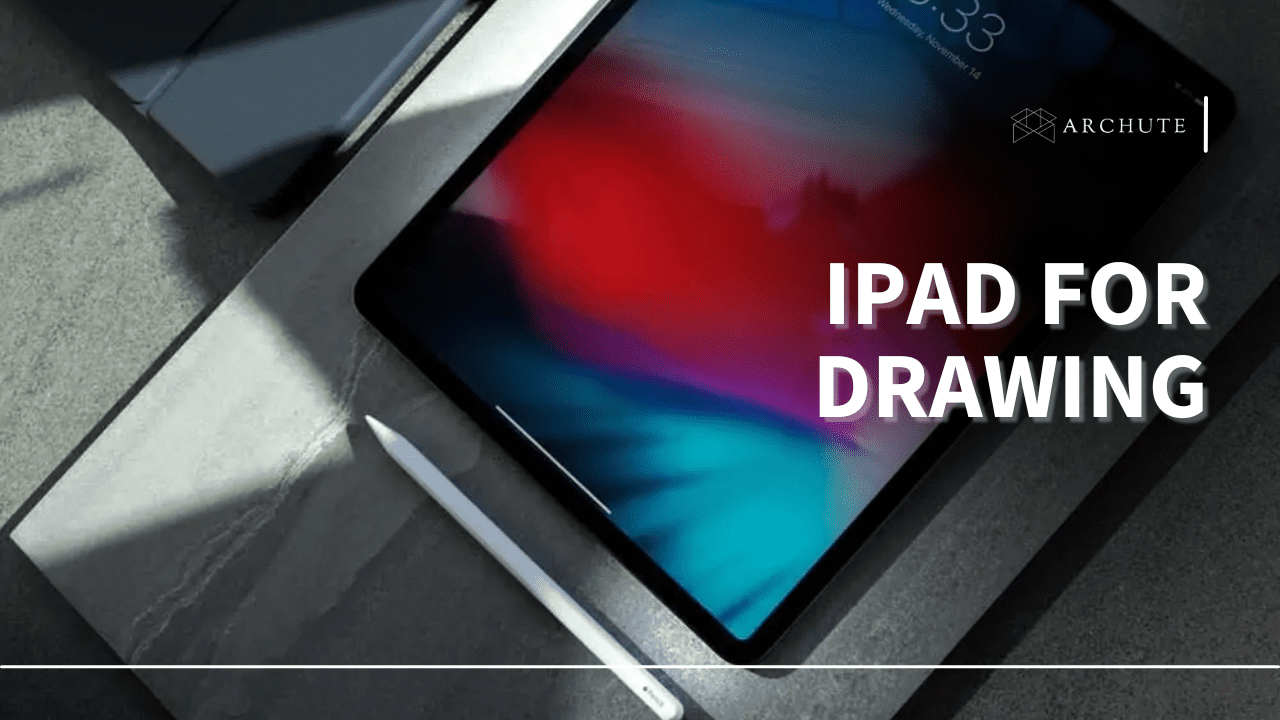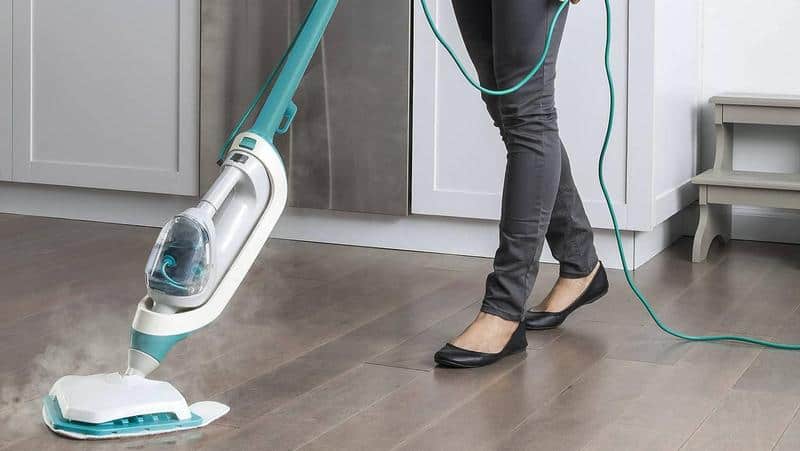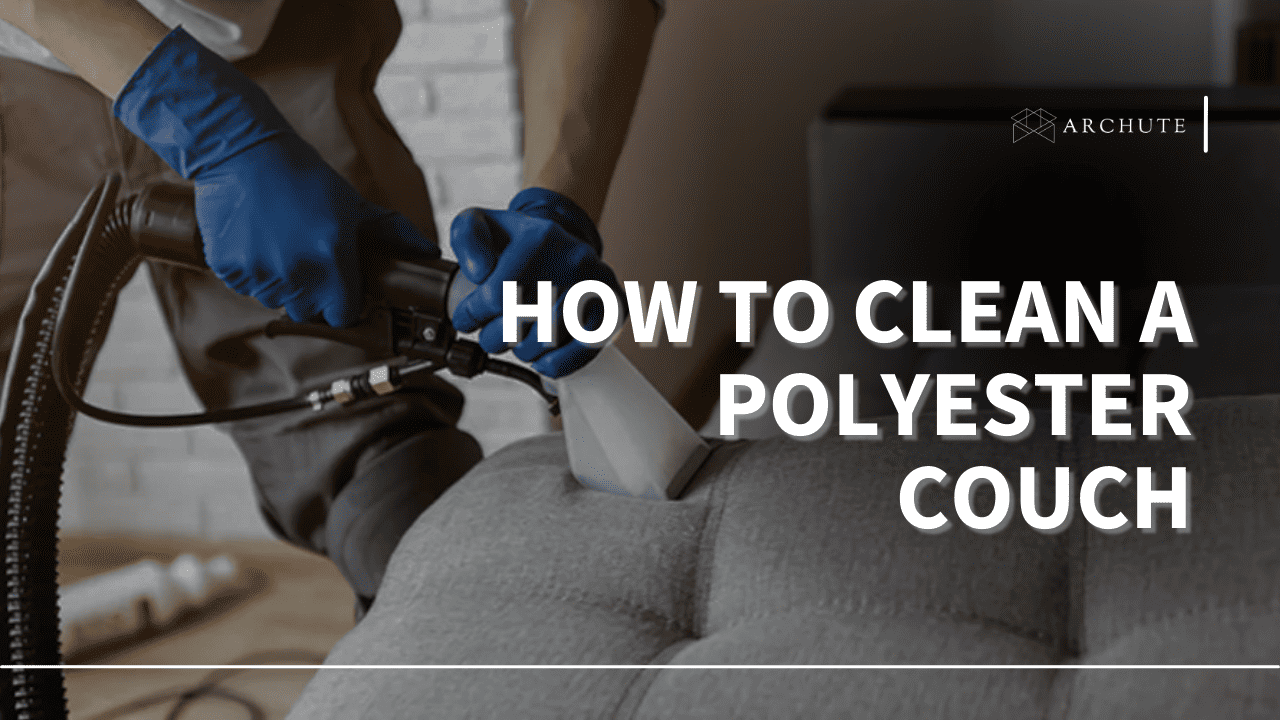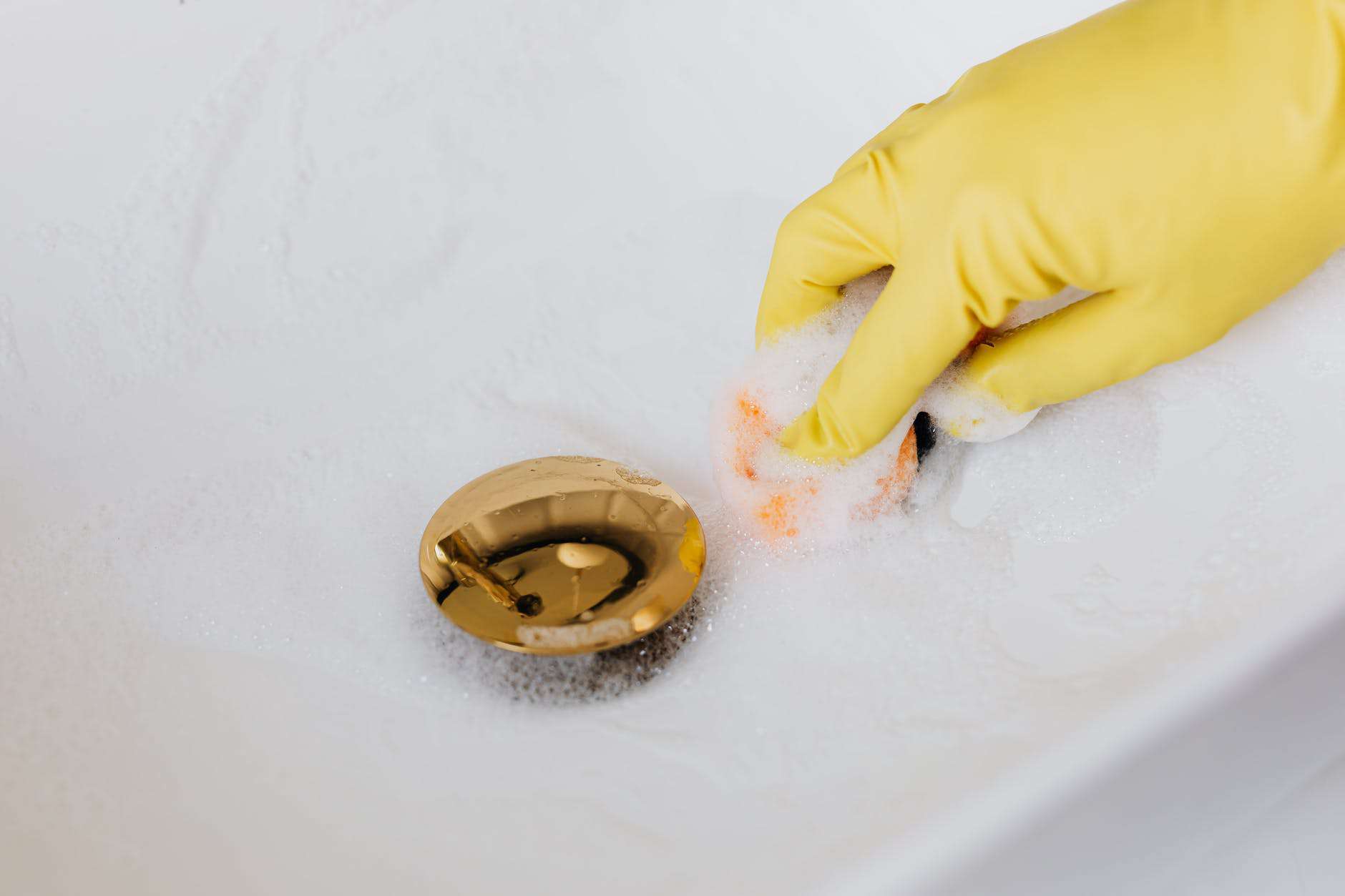Glass has a certain charm and elegance to it. It separates spaces without optically separating them. If you have lots of glass doors or windows in your house, you can relate when we say that glass brings the outside in.
However, some things can completely ruin the experience for you. These are stains. Therefore, in this article, we'll look at how to remove hard water stains from glass.
Whether you're working on glass shower doors, glass doors, glass tables, drinking glasses, glass windows, or any other glass surfaces, we've got you covered.
What Causes Hard Water Stains on Glass
So, what causes these unsightly stains? Hard water contains dissolved minerals that remain on your glass once the water evaporates.
Although the main cause for stains on glass windows is rainwater, there may be other causes. Some of these include water from your sprinkler and leaking gutters. These drops of water may find their way to your glass surfaces and leave dirty stains once the water evaporates.
A small way to prevent the stains from forming is to apply some elements such as a glass sealant, rain repellent products, carnauba paste wax, and any other treatments that prevent water spots.
These treatments work by allowing the water to roll off your glass instead of settling in beads. Now that we know how to effectively prevent water stains from forming on your glass surfaces let's look at how to remove the ones that have already formed.
How to Remove Hard Water Stains from Glass
A crucial thing to remember and note is that you want to prevent the build-up of these mineral deposits on your glass surfaces. This is because the more the stains build up, the harder it will be to remove them.
Therefore, if you could make this process a part of your housekeeping routine, that'd be great. You will always have clean glass surfaces and use less energy cleaning them. The worst thing about hard water stains is that they can permanently scar your glass.
Let's look at what you need to prevent that as well as the steps to follow.
What You Need
Tools
- Soft-bristled brush
- An old towel
- An old toothbrush
- Microfiber cloths
- Eye protection
- Rubber gloves
- Squeegee
- Small bowl
Materials
- Distilled water
- Distilled white vinegar
- Baking soda
- Table salt
- Lemon juice
- Good commercial hard water stain removers
Now that you have all your important materials and tools in place, it's time to get started. First, we'll look at two methods to use based on how severe the stains on your glass shower doors or other surfaces are.
If the first method doesn't remove the mineral deposits, try the other method using the baking soda and white vinegar option. You can also decide to use the commercial hard water stain remover if the glass surface you're working on has severe stains.
Ensure that you wear your protective gear when you're working on your glass surface to prevent any exposure.
Let's get started.
Method 1: Using Distilled White Vinegar
Whether you want to remove hard water stains from your glass shower doors or from your window glass, distilled white vinegar will come in very handy.
Why does it work? Because this vinegar contains acetic acid, which is a mild acid that helps break the bond between the glass surface and the minerals that form the hard water stains. If you don't have white lemon at your disposal, you can always use lemon juice or lime juice.
These juices have citric acid that also works well.
Step 1: Create the Cleaning Solution
You will do this by mixing one part of distilled white vinegar with one part of distilled water in a clean spray bottle. This is where you can substitute the distilled white vinegar for the lemon juice.
If you're dealing with stubborn hard water stains, you can use cleaning vinegar instead of distilled white vinegar. Cleaning vinegar is 20% stronger than white vinegar at dealing with stubborn stains.
Step 2: Spray the Mixture
Once you're satisfied with the solution in the spray bottle, you can start to use it. Spray the created solution onto your glass shower doors or other glass surfaces starting from the top as you work your way down.
Use the old towel to prevent the solution from spilling to the floor. You can place the old towel at the bottom of the glass door or glass surface. Move down in rows until every part of the glass shower door is wet.
Let the vinegar and water solution sit on the glass shower door or other glass surfaces for about 30 minutes. This will give it enough time to work on the hard water stains.
Step 3: Scrub and Wipe
Use your clean microfiber cloth or soft-bristled brush to wipe or scrub away the water stains from the surface. Ensure that you have your rubber gloves and eye protection on as you work on your glass shower door.
This is to protect your eyes and hands from the vinegar solution. Use circular motions as you work and rinse your brush or cloth often. This is to remove the mineral deposits that have accumulated. Use the old toothbrush to work on the corners of your shower doors and around the edges.
Step 4: Rinse and Dry
Use fresh, clean water to rinse the solution off once you're happy with the lack of water marks on your shower doors. Then, use your squeegee to remove the water. Again, start from the top and work your way down.
Once you're happy with what you see, use a clean and lint-free microfiber cloth to dry the surface of the glass completely.
Method 2: Using White Vinegar and Baking Soda Paste
This second method is great to use if you've tried the first method and the stains are still on your shower doors. The baking soda works great as a gentle abrasive to help remove any stubborn water stains.
Using the baking soda paste method will also work effectively if you're working on drinking glasses. Let's see how to go about it.
Step 1: Spray the Undiluted Vinegar
In this case, you won't mix the distilled white vinegar with water. Instead, you'll use the vinegar in its undiluted state. Therefore, once you carefully put your vinegar into the spray bottle, start spraying as we did above.
Start at the very top and slowly work your way down the shower doors. Place the old towel at the bottom to catch any vinegar and prevent it from ruining the floor.
Once you're done spraying, leave the vinegar on for about 30 minutes so that it can work its magic.
Step 2: Make the Paste
This is where you use the small bowl and the distilled water. Mix three parts of baking soda with one part of distilled water to create a thin cleaning paste. The best way to get a paste that isn't watery is to make the paste in small batches.
Once you're happy and satisfied with the consistency of the paste, move on to the next step.
Step 3: Apply the Cleaning Paste
Use your soft-bristled burhs or clean cloth to apply the paste to the stained areas on your shower door. Then, use a gentle circular motion to scrub the hard water stains away from your shower door.
Start at the very top and slowly work your way down. Then, only focus on the areas that have stubborn hard water stains.
If your glass surfaces don't have that many problematic areas, you can use the old toothbrush instead of the soft-bristled brush. Leave the paste on to dry slightly.
Step 4: Spray the Vinegar Again
Once the paste has slightly dried, spritz some of the undiluted white distilled vinegar onto the glass. You will notice that some foam appears as the vinegar and baking soda react.
Once the foaming stops, you can then rinse the glass.
Step 5: Rinse and Dry
Use fresh, clean water to rinse the glass until you're satisfied with what you see. Then, use your clean microfiber cloth or the squeegee to dry the glass.
Now that we've seen how to remove hard water stains from glass surfaces, let's look at some preventative measures to ensure that these stains don't form in the first place.
How Do You Prevent Hard Water Stains from Forming on Glass Surfaces?
1. Regular Cleaning
The best way to keep your windows and glasses clean is to clean them regularly. This will prevent a build-up of the hard water minerals. You can do this every week as you clean the rest of your house.
You can use a lint-free cloth to wipe clean your shower doors to prevent water from during on them. However, the truth is that the longer the stains build up, the harder it will be to remove them, whether you're using basic cleaning products or non-liquid cleaners.
For the shower doors, you can make it a habit to dry them with a lint-free towel every time you're done using the shower. This will prevent the hard water from sitting on them and causing stains.
2. Treating Glass Surfaces
You can use protective coatings on your surfaces to ensure that stains don't build up. This is especially true and necessary if you live in a house with many glass windows and doors. Although this kind of design is elegant and classy, it can also be a pain when it comes to maintaining the spotless nature of the glass.
Therefore, instead of using a cleaning solution to remove the stains, treat your glass so that the stains don't form. The awesome thing about this treatment is that you can do it a few times a year and still get results.
Another way to prevent stains from foaming is to prevent the liquids or hard water from spilling. For example, if you have a glass table, you can use coasters to protect the surface from getting into contact with liquids with minerals.
3. Using Water Softeners
Another good way to prevent hard water stains is to treat the hard water before leaving the source. For example, you can use water softeners to remove minerals in your shower water. This will ensure that the water coming out of your faucet is sot and has no minerals that can form on your shower door.
You can also add a filter to your home water system. This will do great by saving you the hassle of using commercial cleaners or acidic cleaners to remove hard water stains.
Frequently Asked Questions About Removing Hard Water Stains from Glass
1. Does vinegar prevent hard water stains?
Vinegar helps to remove the hard water stains after they've formed. It is not necessarily a preventative measure but a combative one. If you are seeing hard water spots on your glass, it's time to get either white vinegar or cleaning vinegar, depending on the extent.
Follow the steps we outlined for you above to remove hard water spots from your glass using vinegar. Ensure that you use your rubber gloves and protective eyewear while you are removing mineral buildup.
2. Does WD-40 deal with hard water stains?
Yes. WD-40 can be an effective bathroom cleaning solution to work on hard water spots. The reason it works is that it's a lubricant, and it's gentle on the surface.
Therefore, it will help you get a clean surface without harming the glass or creating any other spots. WD-40 also has water displacement properties that protect your shower dos from further staining.
Spray the WD-40 on your surface and then gently wipe away with a clean cloth. You can also use some elbow grease with the WD-40 for more effectiveness.
3. How can you prevent hard water stains from forming on glass shower doors?
You can get an affordable and comfortably-sized squeegee and place it in your bathroom. You can then use this squeegee every time you shower to remove any water that has splashed on the shower door.
Another way you can prevent this is by using a water softener. This means that any water that comes from your shower won't have minerals in it that can stain your glass.



